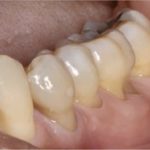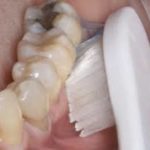Many leading toothpastes tend to cause significant wear on your teeth. Commercially available types of whitening toothpaste contain small particles. These small particles, especially when forceful brushing is done, cause loss of enamel.
Loss of enamel has great impact on the oral health of a patient. It does not regenerate or heal itself, so losing tooth enamel will eventually lead to loss of overall dental health, including an increase in cavities and need more more invasive dental work, such as root canals, crowns and possible loss of permanent teeth. These abrasive toothpastes also create too much friction along the gum line, which can damage the soft tissues of the mouth and jaw, eventually leading to gum disease and gum recession. Those dental issues may require extensive oral surgery to help return the mouth and gums to its former, healthy state, and it may not be possible to strongly anchor teeth in those areas.
Enamel is a hard tissue that cannot regenerate. Once lost, it’s lost forever. Abrasive toothpastes may also contribute to gum recession. Many times we diagnose non-carious cervical lesions (NCCLs) on the teeth.
To learn more about these lesions, click here or scroll down:
These lesions are many times a combination of enamel loss and gum recession. If they are not addressed, they can become deep and cause sensitivity and tooth loss.
This is how they look:
See the table below that classifies commercially available toothpastes by abrasiveness. Where is your whitening toothpaste on the list? Schedule your appointment at Synergy Periodontics and Implants today!




